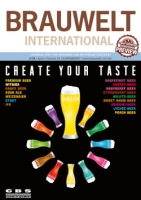The Kyoto protocol from 1997 which entered into force in February 2005 was followed by the 6th Environment Action Programme, the European Commission’s environment priorities for 2002 to 2012. On 9 December 2008 the EU Parliament delegation, the EU Council and the European Commission agreed on the EU Directive on Renewable Energy. The directive sets ambitious standards to put renewable energy at top of energy mixes. One of the goals is to increase the market share of renewable energy from around 8.5 percent today to 20 percent by 2020 by means of binding national targets. That raises the question what can be done in practice to achieve those objectives.
We seem to know what we mean when we remember “1989”: images of jubilant crowds standing on top of the Berlin Wall are vivid in our minds. But when we reflect on the seismic changes that came with it – the collapse of the Soviet Union, the end of the Cold War, the rise of American hegemony – 1989 feels like ancient history. Still, the ruptures of 1989 heralded in an era of accelerated globalisation. As China, Russia, India, the nations of eastern Europe and Latin America began to deregulate and liberalise their economies, many brewing companies pursued a feisty acquisitions policy to establish beachheads. But only a brewer from South Africa knew that it would take more than clever deal-making for a company to grow sustainably: a belief in people, a brand-led culture and a long-term vision. Twenty years after they embarked on their international expansion scheme, SABMiller rank as the world’s only truly global brewer.
Two of the most famous names in brewery engineering technology, GEA Group companies Huppmann and Tuchenhagen Brewery Systems, merged their operations in March 2009 to form a new division called GEA Brewery Systems. The best, it seems, is about to get better.
With around 50 per cent of product choices made spontaneously at the point of purchase, packaging must not only persuade with its functionality, but its visual appearance is also of great importance and of increasing significance. Today’s beverage cans succeed on both counts: not only are they extremely practical but, due to the countless design possibilities, they are also able to act as brand “ambassadors”.
Following recent M&A activity, notably the recent creation of A-B InBev, Plato Logic have now prepared an updated Top 10 World Brewers league table, based pro forma 2008 volumes (latest estimates).
Only a few years ago, many a brewer would declare: “My market is within a circumference of 50 km around my chimney“. But Europe is coming together and is at the same time opening up new business markets. Many regional brands are turning into international brands. And so an increasing number of brewers are leaving regionality behind and are conquering European markets with their products.
Requirements for food safety throughout the whole production chain changed considerably in recent years. In the so-called “General Regulation on Food Law” (EU Regulation No. 178/2002), the primary legal responsibility for ensuring food safety rests with the food business operator. He cannot pass on this responsibility to sub-suppliers. This overview on certifications places emphasis on the International Food Standard (IFS).
Mention Georgia, and with a few exceptions people will first think of the American state famous for peaches, Coca-Cola’s headquarters and the peanut farmer who became president. Few would have known that there is a country by the name of Georgia. Sadly but true, it took the recent Russian-Georgian war to make sure that Georgia is now firmly on everybody’s mind.
Upon close of the transaction, all shares of Anheuser-Busch will be purchased for USD 70 per share in cash, and Anheuser-Busch will become a wholly owned subsidiary of InBev.
Vereinsbrauerei Apolda, a brewery located in eastern Germany between Weimar and Jena, has a long-standing tradition. The company‘s history dates back to its founding in 1887. Because the brewery is situated in a valley the odour emissions from the brewing process have a stronger influence on the surroundings. This lead to increasing complaints from the neighbourhood. Now the brewery is testing a new method for odour reduction.

